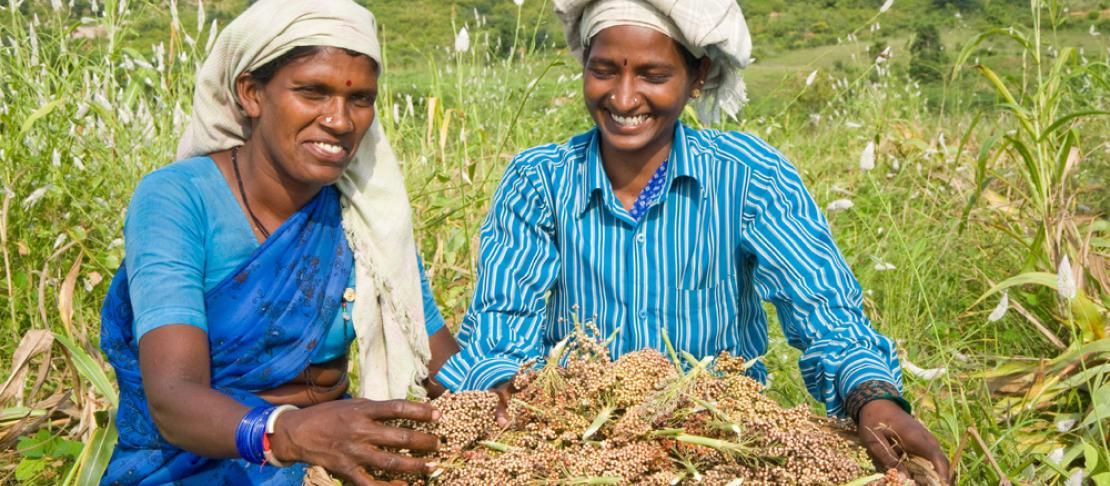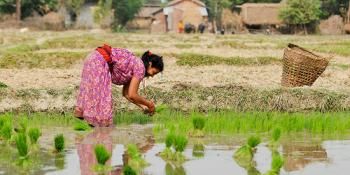India promotes climate resilience through its food security bill

Summary
The research was implemented in collaboration with Bioversity International.
In 2014, India began the implementation of its National Food Security Act, which was signed into a law in 2013. The new law aims to provide subsidised food grains to more than 800 million people in the country. While this law will have obvious implications to the food security of the Indian population, the law goes further in also promoting climate resilience. It embraces a diverse range of food grains, including millets, sorghum, and maize, a group of crops called “coarse grains” in its text. This is a first, as prior to this law, food distribution systems only sourced “fine grains” i.e. rice and wheat. Coarse grains are highly nutritious, but they are also highly resistant to climate-induced stresses. Their inclusion in the law is likely to promote cultivation, especially in the more marginal areas of India, where these crops are very important for local food security and cultural identity. It is estimated than over 31 million Indian farmers grow these crops, stimulating their production therefore contributes to climate adaptation and food security.
The inclusion of these broad varieties of grains within the law came as a result of research and policy engagement efforts by Bioversity International and its partners, particularly the M.S. Swaminathan Research Foundation. These efforts have shown policy makers the value of small millets. Bioversity co-designed a sustained effort to investigate small millets and their potential role in climate-smart agriculture, built partnerships around this effort, and supported the M.S. Swaminathan Research Foundation scientifically and through international coordination. South-South exchange visits with other similar projects working on traditional crops, specifically the Andean region were also facilitated.
Key facts
- The National Food Security Act targets more than 800 million people with publicly financed food distribution, and will distribute coarse grains such as millets, sorghum, and maize, in addition to rice and wheat.
- In 2010-2011, 31.8 million households cultivated coarse grains in India-which are resilient to climate induced stresses. Stimulation of demand for these crops will make cultivation more attractive and help farmers increase resilience.
Lessons: key elements of success
- Policy engagement efforts focused at mainstreaming climate-smart approaches within relevant policies (food security bill) can be an effective way of scaling up climate-smart approaches
- Partnership with the M S Swaminathan Research Foundation was a key factor in the success of these efforts
Further reading
Related research outputs
- Padulosi S, Mal B, King OI, Gotor E. 2015. Minor millets as a central element for sustainably enhanced incomes, empowerment, and nutrition in rural India. Sustainability 7(7):8904-8933.
- Padulosi S, Heywood V, Hunter D, Jarvis A. 2011. Underutilized species and climate change: current status and outlook. Crop Adaptation to Climate Change. Oxford: Blackwell Publishing Ltd. p.507-521.
- Padulosi S. 2011. Unlocking the potential of minor millets. Appropriate Technology Vol 38:1 (21-23).


